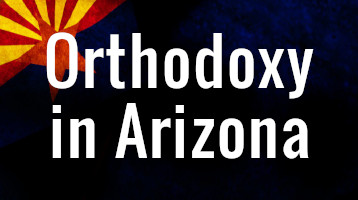
“He who offers a sacrifice of thanksgiving honors Me; And to him who orders his way aright I shall show the salvation of God.” – Psalm 49:23 (LXX)
Next year is the 400th anniversary of the celebrating Thanksgiving to God for the mercy, love, and bounties he pours out on us.
The giving of thanks is the central act of Christian worship, and it is an integral feature of Old Testament worship, which are types of Christian worship. There are many instructions for sacrifice throughout the Pentateuch, but Leviticus chapters 1-7 is completely dedicated to the 5 Levitical offerings which were the main sacrifices used in the rituals.
The 5 kinds of sacrifices described in such detail in Leviticus are: The burnt offering, the meal offering, the peace offering, the sin offering, and the trespass offering. There was, however, another optional offering, the Thank Offering, or the sacrifice of thanksgiving. Leviticus 7:12 states,
If he offers it for a thanksgiving, then he shall offer with the thanksgiving sacrifice unleavened loaves mixed with oil, unleavened wafers smeared with oil, and loaves of fine flour well mixed with oil.
There is a Midrash (rabbinic teaching based on Jewish values and tradition), from the Rabbi Akivah (2nd century AD), known and taught to this day that states:
“In the Messianic era, all sacrifices will cease except the sacrifice of Thanksgiving, which will continue forever.” (Midrash Vayikra Rabbah 9:7)
While the Hebrew word for “thanks” is todah, the word for ‘thanksgiving’ in Greek is eucharist. It’s all over the New Testament, but usually translated as ‘thanks’ or ‘the giving of thanks.’
Philo, a first-century Jew, describes the Passover as a festival of thanksgiving: “And this festival is instituted in remembrance of, and as giving thanks [eucharistia] for, their great migration which they made from Egypt.”(5) Philo focuses here on two key reasons for the Passover: remembrance and thanksgiving (cf. Ex. 12:14, 13:3). Here again we must note how the Passover fits into the todah genre, for remembrance was one of the primary purposes of the todah. The Passover is Israel’s corporate todah meal.
When Jesus takes the bread, breaks it, and declares thanksgiving (eucharistia), He is performing the key function of both the todah offering and Passover meal — giving thanks for deliverance. But here Jesus is not simply looking back at Israel’s history of salvation, but forward to His death and Resurrection. In other words, Jesus is giving thanks to the Father for His love and for the new life to be granted in the Resurrection. Note that Jesus’ words over the bread, His thanksgiving, is what the Christian tradition has focused upon — so that they could call every re-enactment of the Last Supper “Eucharist.”
In the Eucharist, Christians give thanks for God’s deliverance and remember how Jesus brought about the new exodus with His death and Resurrection. For Jesus had told them,
“Do this in remembrance of me” (Luke 22:19).
This act of remembrance is what the Eucharist is all about — recalling in gratitude God’s saving deeds. This leads us to one of the key fruits of a Eucharistic spirituality: A deep sense of thankfulness leads to worship. Worship flows from gratitude; cut off from gratitude the will to worship withers.
I will offer to Thee a sacrifice of thanksgiving, and call on the name of the Lord. – Psalm 116:17



